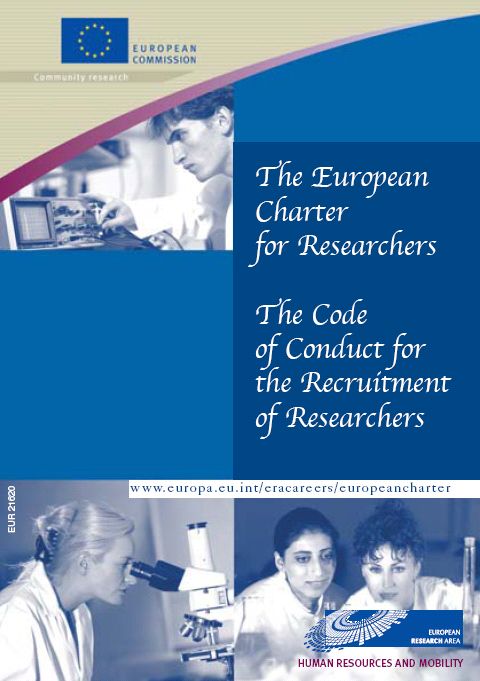May promote gender equality
The work on standardising the workday of European scientists may further gender equality in the research sector, if a gender perspective is employed, says the Committee for Mainstreaming – Women in Science in Norway.

In 2005 the EU Commission presented two documents that will make it easier to work across borders for European scientists and make it more attractive to choose a career in science. The European Charter for Researchers recommends identical rights and duties for researchers and research institutions in all countries while the Code of Conduct for the Recruitment of Researchers contains guidelines for how the recruitment of researchers should be carried out.
Promotes gender equality
In Norway, both the Research Council of Norway and The Norwegian Association of Higher Education Institutions (UHR) have agreed to the recommendations made in the documents. The UHR also encourages their member institutions to do the same. In that connection the Committee for Mainstreaming – Women in Science (the Kif committee) has gone over the two documents and looked at how they may affect the gender equality work in the research sector.

"These documents are very relevant with regard to gender equality," says Linda Rustad, senior adviser to the Kif Committee. "They contain guidelines for the recruitment of researchers and give recommendations as to how institutions should treat their employees. They mention for instance inclusion, employers taking their responsibilities seriously and having a strong management. All these aspects are important in order to improve the situation for women in science."
The documents also emphasise that employers must be flexible and give both female and male researchers the opportunity to combine work with family life.
A gender-sensitive reading
The committee writes in its analysis that most of the document content is phrased in a general manner, which they consider positive. Maintaining a high quality level in the recruitment processes is likely to make institutions more attractive to both women and men. However, the committee is worried that the broad perspective may lead to a disregard of gender differences that affect recruitment and career development and emphasises the need for a gender-sensitive approach.

"The charter mentions gender equality once. Employers are encouraged to promote gender equality on all levels, including the top management. But our point is that the other principles also are important in a gender equality perspective. The institutions must be aware of this when they incorporate the documents in their work. They can use them to actively promote women in science," Rustad states.
Meets the criteria
As one of few countries Norway has carried out a deviation analysis of how Norwegian law and practice differs from the guidelines of the charter and the code of conduct. The analysis, which was carried out by the UHR, shows that Norway already meets most of the recommendations.
Rustad still believes it is necessary for research institutions to take a closer look at the documents.
"The Norwegian deviation analysis has looked at how the regulations of the university and university college sector correspond with the recommendations made in the documents. But how the research institutions actually operate is a different matter," she says.
Translated by Vigdis Isachsen
The Committee for Mainstreaming – Women in Science has performed a gender-sensitive analysis of the European Charter for Researchers and the Code of Conduct for the Recruitment of Researchers.
The Research Council of Norway and The Norwegian Association of Higher Education Institutions (UHR) have agreed to the recommendations made in the EU Commission’s European Charter for Researchers and The Code of Conduct for the Recruitment of Researchers.
Norway has participated in the preliminary work and most of the recommendations are already met in Norway. The UHR encourages its member institutions to comply with the principles of the documents.
The European Charter for Researchers calls for more flexible career paths and evaluation criteria, including better opportunities to combine research with children and family life and recognising work experience outside of academia. The Code of Conduct for the Recruitment of Researchers contains principles as to how the recruitment of researchers should be conducted.
The documents make a recommendation. Hence, ratification involves supporting the general outline, not an obligation to comply with all the principles.
